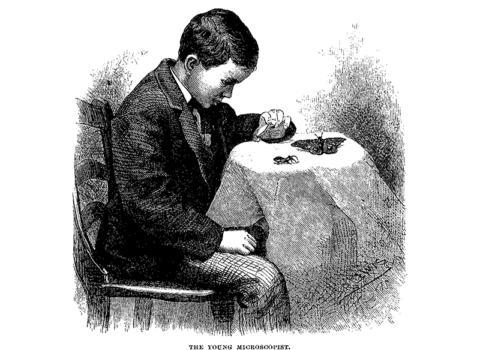The Virus
"After only three primaries—almost a tie in Iowa, an emphatic victory for Sanders in New Hampshire, and 52.6 percent for Hillary in Nevada—Mrs. Clinton found herself being guaranteed the nomination by the newspaper of record."
For a few moments after his near-win in Iowa, the hopes for a grassroots miracle raised by Bernie Sanders’s candidacy were so high that reports on them spread throughout the American news media. Normally cynical, some journalists betrayed genuine happiness at seeing Hillary Clinton’s supposedly “inevitable” victory forestalled by an insurgency on her left. By upsetting the domination of the Clinton couple and their money machine, a seventy-four-year-old “socialist” who looked like a schoolteacher had seized the imagination of reporters longing for a Democratic “story” equivalent to what the Republicans and Donald Trump were providing: ordinary people are fed up with the establishment. No more Bushes. No more Clintons. No more typical politicians, whoever they may be. And then came Trump and Sanders, riding to the rescue, relieving weary observers of their boredom.
But last month, the entente cordiale between Sanders and the press abruptly broke up. Perhaps the so polite, so sincere Bernie was too threatening, especially after his crushing victory over Hillary in New Hampshire. Leading the reaction was the Gray Lady of the American press, the New York Times, which is increasingly acting as a mouthpiece for the Clintons and the Democratic establishment. After Clinton squeezed out a victory in the Nevada caucuses, the Times’s editors showed their satisfaction, not to say joy, at the outcome: “Buoyed by the support of minority voters and enthusiastic workers in the city’s big casinos, Hillary Clinton defeated Senator Bernie Sanders…thwarting his momentum and proving to an anxious Democratic Party that she can assemble a broad coalition to carry her to the general election.” Said coalition included a group called Hookers 4 Hillary, among them 500 sex workers based in Carson City. The comical aspect of this particular group’s rallying to the Clintons—who totally sold themselves to the financial powers in New York, Los Angeles, Chicago (and Las Vegas) a long time ago—must have been lost on the Times. “Mrs. Clinton’s team,” the paper reported, “breathed a sigh of relief.” In fact, veritable sighs of relief could also be heard in the New York Times headquarters on Eighth Avenue in Manhattan (as well as on K Street in Washington, where the unelected power resides). The status quo of Wall Street was preserved; the militarist consensus on foreign policy protected; congressional corruption and corporate bribery disguised as campaign contributions reassured. This was the relief of an oligarchy that rejects all reform and all reformers as though they were viruses. Sanders is a virus—and the Clintons are the immune system of the Democratic Party and the conformist media.
On Sunday, February 21, the daily paper of the American ruling class crowned Hillary Clinton: “Delegate Count Leaving Sanders with Steep Climb.” So after only three primaries—almost a tie in Iowa, an emphatic victory for Sanders in New Hampshire, and 52.6 percent for Hillary in Nevada—Mrs. Clinton found herself being guaranteed the nomination by the newspaper of record.
Sorry? What? I understand that the Clintons have great advantages over Sanders—enormous donations from the banks and the rich, the support of a huge majority of Democratic leaders (and the consequent backing of the great majority of the superdelegates selected by the party), name recognition—but the Times was in a little too much of a hurry. On the day after Super Tuesday, the story was the same. Front-page headline: “Trump and Clinton Feast as 12 States Vote.” Trump had indeed dominated his opponents, winning seven states out of twelve across different sections of the country. By contrast, six of the seven states that Clinton won—thanks largely to the support of black voters—are in the South, a region long dominated by the Republican Party. It’s not likely that either Clinton or Sanders is going to win Alabama, Arkansas, Georgia, Tennessee, or Texas in November. Clinton would probably have a better chance in Virginia. Sanders, however, won in Colorado, Minnesota, Oklahoma, and his stronghold of Vermont, four geographically diverse states. Colorado remains very winnable for a Democrat. Massachusetts, where Hillary won by the skin of her teeth, will vote for a Democrat, whoever it may be. So how could one justify the front-page declaration in the Times, according to which Clinton on Super Tuesday “proved for the first time that she could build a national coalition of racially diverse voters that would be crucial in the November election”? A week and a half earlier, after the Nevada caucuses, the Times had loudly pointed out how much the “solidarity” Mrs. Clinton expressed “with minority voters” contrasted with Sanders’s “more esoteric” criticism of Wall Street’s excessive power. The minorities, therefore, will magically become a majority that will carry Clinton into the White House? And the widespread anger at Wall Street? Could that be a minority sentiment? This is a whole lot of nonsense.




